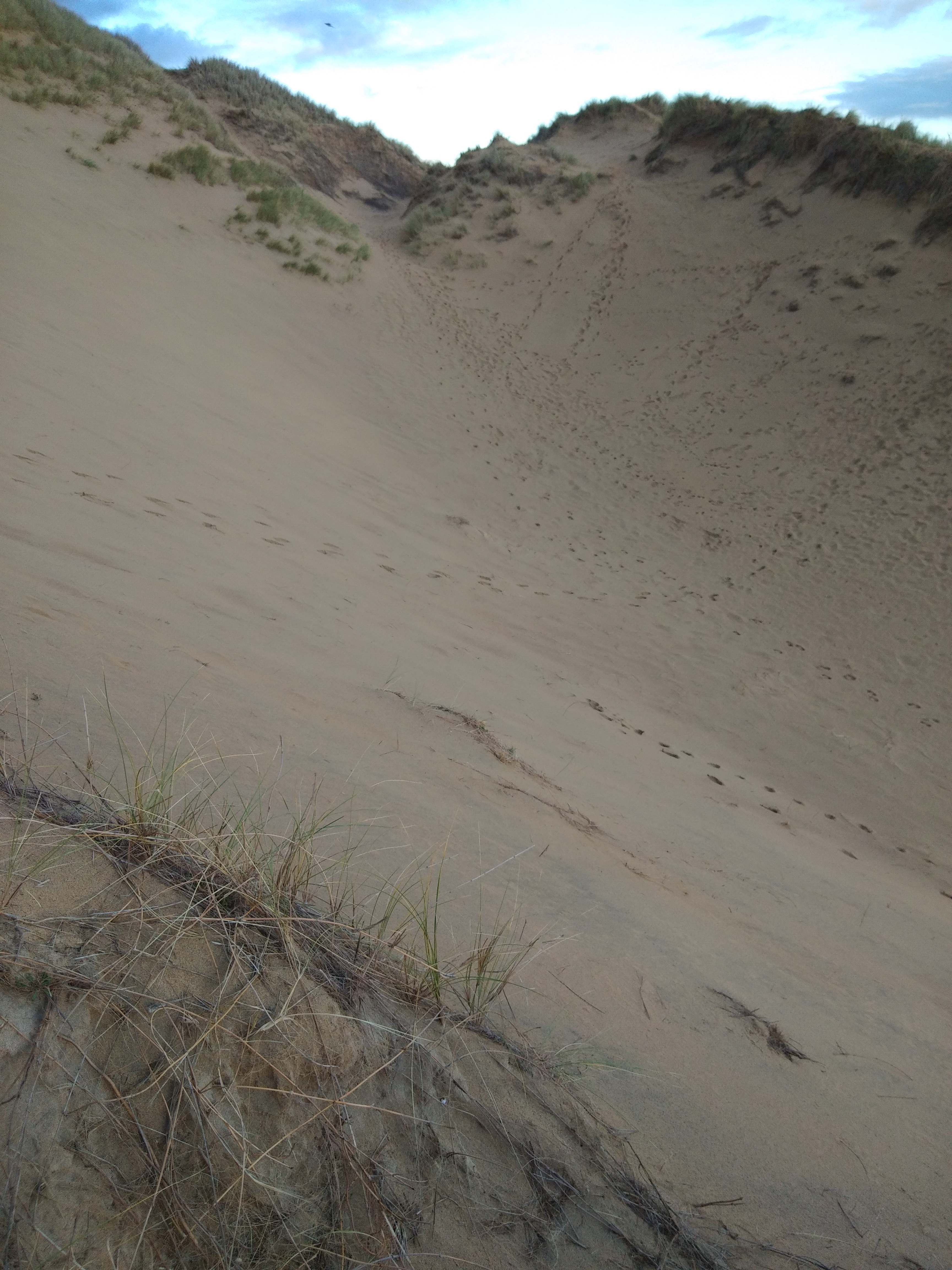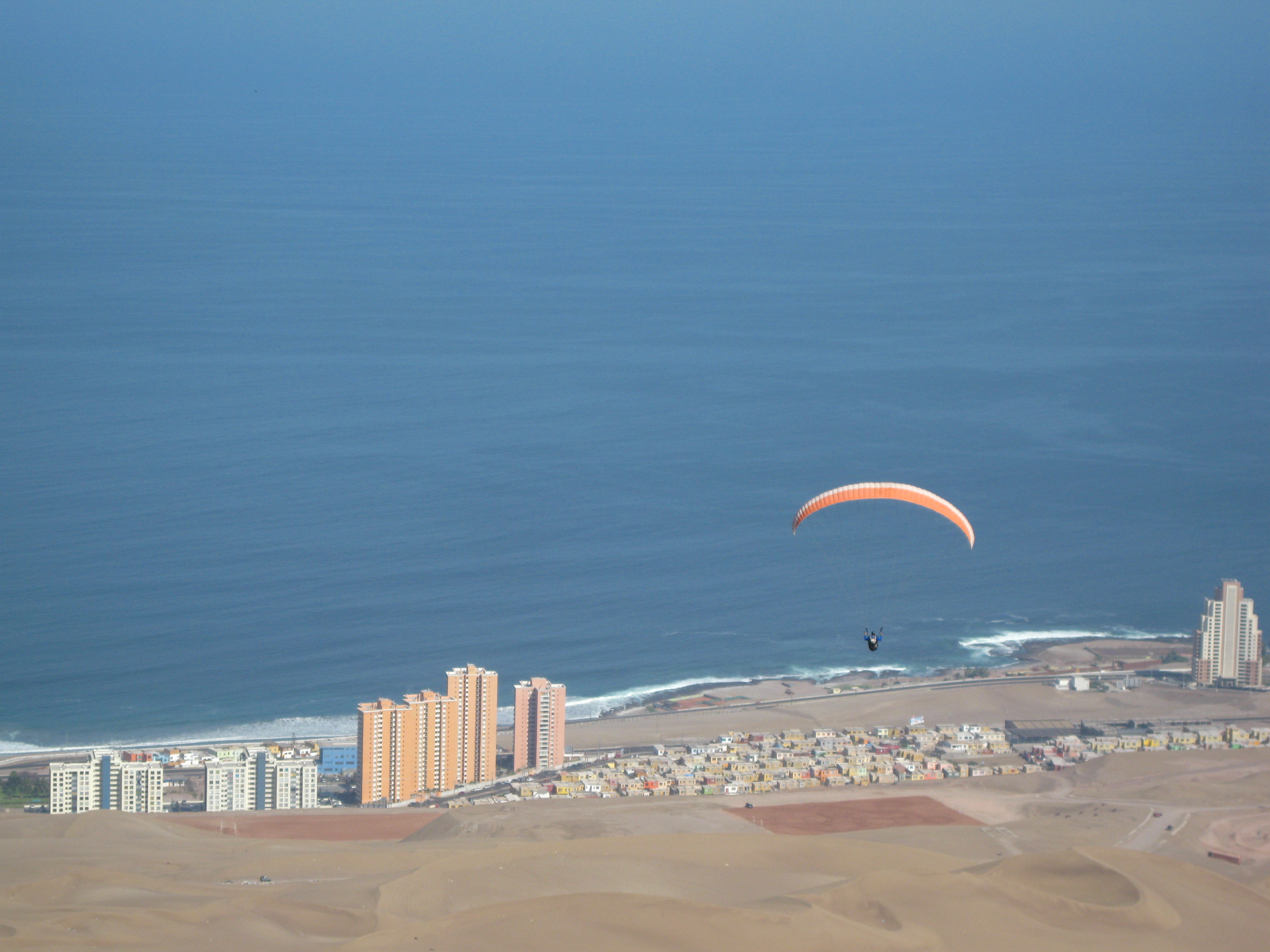This stunt was also covered by national UK newspapers, and also described that "It was the first time a participant in his sport had been towed by a car on UK shores." Keyan Milanian. 2019. Sandboarder tears up Britain's largest sand dunes as extreme sportsman is towed by car in UK first - Mirror Online. [ONLINE] Available at: https://www.mirror.co.uk/lifestyle/motoring/sandboarder-tears-up-britains-largest-9932080. [Accessed 25 February 2019].
At this point, I stopped reading and asked myself a few questions; Who was this man? Why was Jeep here? How come I've never heard of another sandboarder in this country?
I dug deeper, and discovered that it was none other than Alex Bird, an extreme sportsman and now sandboarding instructor who has also been involved in other sports alongside sandboarding, both in a recreational and competitive fashion.
I had burning questions, so I finally managed to contact him after some searching, and after some time I finally managed to have an interview last week!
 |
How did you initially get into sports?
"I have skied since I was 3 years old. I then got into skateboarding and then snowboarding from the age of about 11, since then I've been hooked on all board sports."
Would this be partially the reason why you got into sandboarding as well?
"Yeah the excitement of going sideways! I enjoyed team sports too but love the freedom and adventure that go with board sports."
In 2017, you were approached by Jeep for their Renegade Desert Hawk, how did it feel to be a part of that?
"It was a really exciting project and an honour to be involved in, Jeep approached us asking what sort of things could be done, we talked through lots of ideas including trying to break the sandboarding speed record, they were really supportive with our ideas."
Has anyone yet recognised you from the advert?
"No! Although we do sandboarding lessons and people who book have often seen the ad."
Claim to fame? Perhaps?
Have you done sandboarding in other places?
"I've been to Dune Du Pilat in France, which is awesome and has some of the longest runs I've had but I think we have a bit more variety and some different features to ride."
I'm in agreement with Alex on this; a lot of sources have indicated many times that Merthyr Mawr in Wales have the second highest dunes in Europe behind the Dune Du Pilat, and that Holywell Bay is where I first learned to sandboard, as well as being a strategic camp used during both the Second World War and the Cold War.
Would sandboarding be a sport you want more people in the UK to know about?
"Definitely. It's a great activity and a great way to stay fit! It also happens in some beautiful places, events are always a great way to inspire and get more people involved in the sport."
I also spread word to Alex regarding my campaign to make the UK a member state of Dune Riders International, which I don't think will happen for a few years if I'm honest however I'd like to see someone like Alex be the first President of the British division of the DRI.
Is there a philosophy you live by?
"Not really, I just try to do something outside and active every day, even if it's a run in the rain after work."
Are you competitive?
"I can be! I compete in the British Kitesurfing Championships Wavemasters Fleet, I've come 3rd for the last 2 years. It can really motivate and push you to improve."
Any long term ambitions?
"Just to see my kids get better than me!"
What advice would you give to anyone who wants to start in a competitive sport?
"Get involved and enjoy it. Be honest with yourself and others about your own ability and people will support you. I've met some great people and learnt loads through competition."
It has taken so long for me to finally get all of my work and degree stuff aside, not just because of this interview with Alex but for my blogging as a whole; I'd like to see more stuff like this in the future with other sportspeople, as for this interview I've finally discovered more to the guy on the Jeep sandboarding advert.
But literally minutes before this article was published, I got a final statement from Alex himself: "I really need to get a big thank you in there to Nigel Brown from Barefoot Surf School as he really got me into it as he set it up as a flat day activity for the surf school. He really pioneered sandboarding in North Devon, building and testing his own sandboards and finding locations. He was also the one who helped make the whole Jeep ad happen."
A big thank you to Alex for making this article possible! Nice one!



